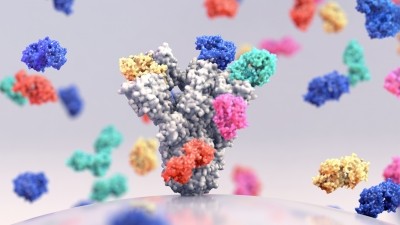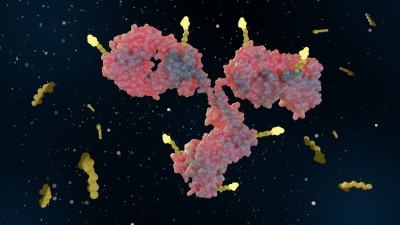Synaffix and BigHat Biosciences collaborate to develop AI-designed ADC

The Dutch biotech Synaffix and the Swiss company BigHat Biosciences announced yesterday that they have entered into a collaboration agreement to develop a new, next-in-class antibody-drug conjugate (ADC) program.
The collaboration will combine Synaffix’s clinical-stage ADC platform technology with BigHat’s artificial intelligence (AI)/ machine learning (ML)-powered antibody design platform called Milliner. Under the terms of the agreement, BigHat will gain target-specific access to Synaffix’s ADC technology platform, which transforms antibodies into best-in-class ADCs, as well as to Lonza’s end-to-end ADC offering. Lonza acquired Synaffix in June 2023.
"BigHat is leveraging our AI-driven antibody design platform, Milliner, to develop advanced biologics that provide safer and more effective treatments for difficult-to-treat cancers,” explained Mark DePristo, CEO of BigHat Biosciences, in a press statement. “We are excited to combine Synaffix's conjugation and linker-payload technologies with our custom-designed antibody to create a next-generation ADC for patients with high unmet medical needs."
Peter van de Sande, Head of Synaffix, added: "The ADC space continues to develop and evolve, and our collaboration with BigHat exemplifies the continued strength and appeal of our best-in-class ADC technology. We are excited to be at the forefront of next-generation ADC R&D by joining forces with BigHat and its AI/ML-enabled antibody discovery and development platform [...] We look forward to supporting BigHat with every step in the ADC development and manufacturing process under the Lonza umbrella.”
As a relatively new category of drugs, ADCs are seen as more effective and safe than many conventional treatment options. They are made up of an antibody that can target cancer cells, which is chemically linked to a cytotoxic payload– a drug that can kill cancer cells.
ADCs have been gaining popularity over the last few years. In 2023, the global ADC market was estimated at around $11.3 billion and is expected to grow at a CAGR of 9.2% from 2024 to 2030. Market growth is driven by the increasing incidence of cancer and the growing demand for more effective drugs with fewer side effects. The main cancers targeted by ADC developers are blood, breast, urothelial, and bladder cancers.
ADCs have also been on the news repeatedly in the last few months. For example, in October, the FDA cleared Adcentrx Therapeutics’ IND application to start Phase 1 for its ADC targeting solid tumors. The Danish company Adcendo and Chinese company Multitude Therapeutics entered into a $1 billion deal to develop ADCs for the treatment of cancer; and in August, the FDA lifted a partial hold on a Phase 1 trial evaluating an ADC candidate developed by MediLink Therapeutics and BioNTech for the treatment of advanced or metastatic non-small cell lung cancer and breast cancer.











